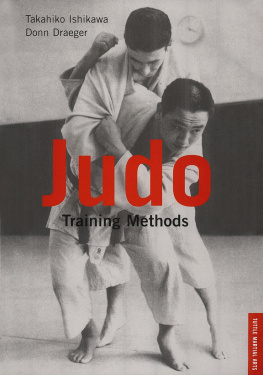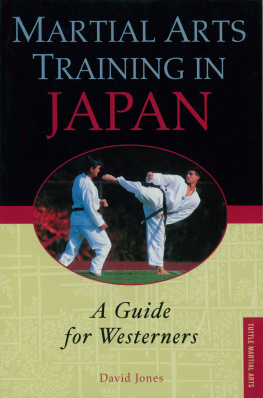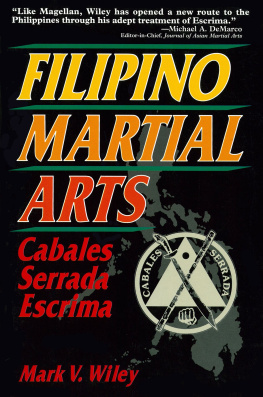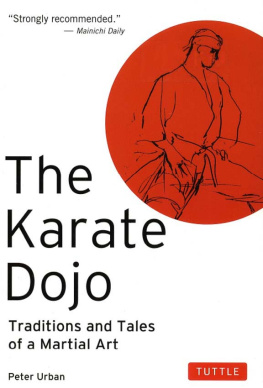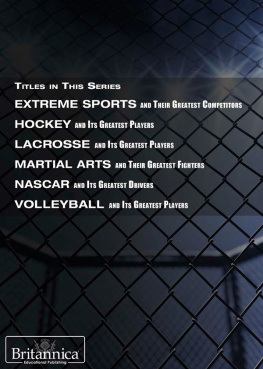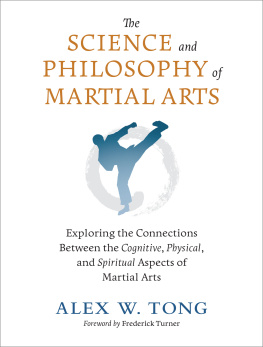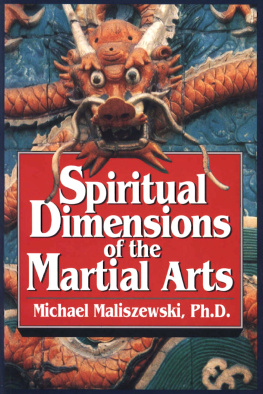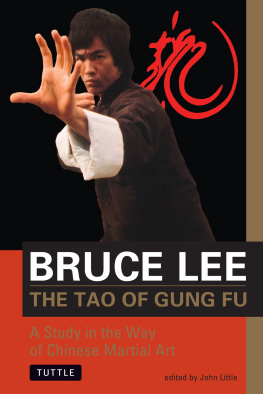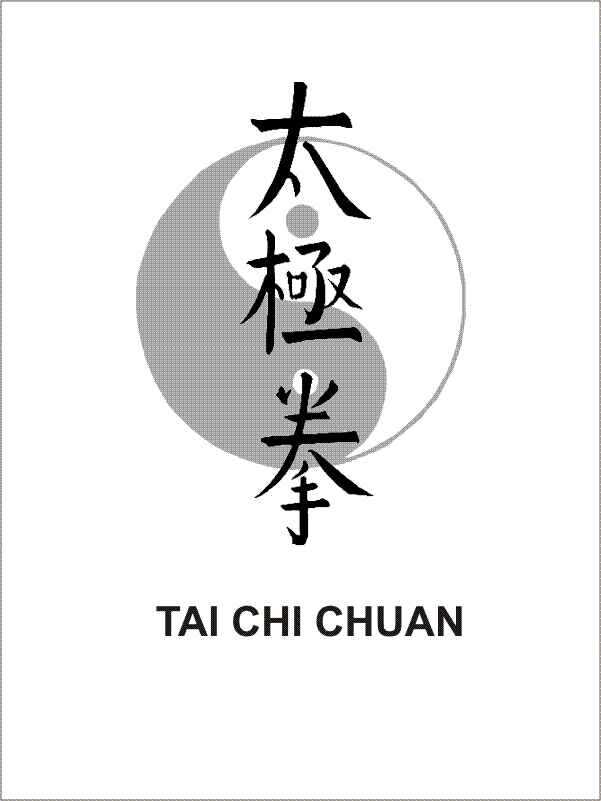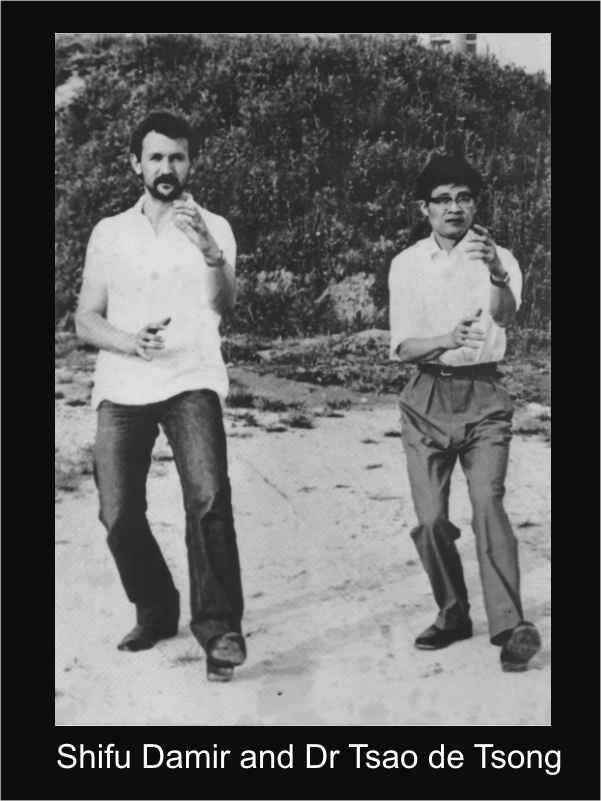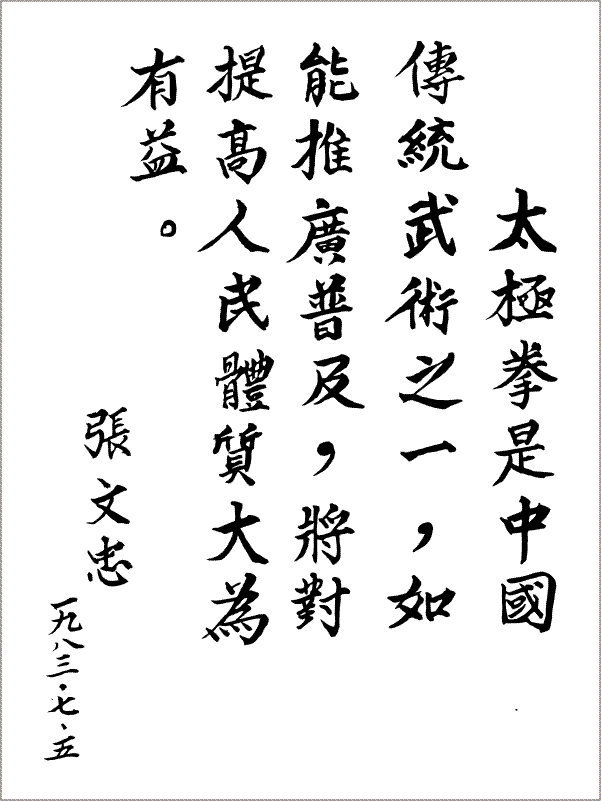Copyright 2021 DAMIR TENODI
All rights reserved. no part of this book may be reproduced or utilised in any form or by any means, electronic or mechanical, including photocopying, recording or by any information storage and retrival system, without permission in writing from the publisher.
Illustrations - DAMIR TENODI
Book design - SUNICA (Sunny) DAI
Translation from Croatian - VESNA TENODI
Photography - VESNA TENODI
Caligraphy - CHANG WEN CHONG
First published in Croatian by SPORTSKA TRIBINA,
Zagreb, Croatia, 1986
BOOKS by the same author published by ANAN PRESS
"Desperately Seeking Yin" - exploring the neglected dimensions of modern Tai chi chuan, or Tai Chi Chuan - as the Masters-of-the-next-level see it
Sydney 2004 ISBN 1-875323-05-8
(https://www.anan-do.com/images/eng_review_yin.htm )
"Yin & Yang out of their circle" - Zagreb 1990
"18 Lohan Kung" - 1994
"Therapeutic Martial Arts" - Zagreb 1996
"Dialogues with Master Ananda - 1988." - Zagreb 1994
"Dialogues with Master Ananda - 1989." - Zagreb 1996
https://www.anan-do.com/images/eng_ananpress.htm
"Fear of Self" ( "SOS - Strah Od Sebe" ) - on stress and depression
Published by VBZ, Zagreb 2009 ISBN 978-953-304-031-8
Enquires: damir@anan-do.com
https://www.anan-do.com
https://www.facebook.com/damir.tenodi
Sites and links of interest:
https://www.youtube.com/c/AnanDoVideo
https://www.facebook.com/AnanDo.IntegralMartialArts/
To the enthusiasts,
who embrace these arts
with all their philosophical implications,
believing that, through such an approach,
their lives can be enriched with moral and behavioural values,
by coming to understand themselves and the world we live in.
And to my first Yang style Tai chi teacher,
Sifu Dr. TSAO DE TSONG
Review
For quite some time now, the Oriental spiritual and physical exercises and martial arts such as Aikido, Judo, Karate and Kung Fu have been extremely popular in this country. This book is an introduction to a new, meditative-physical phenomenon derived from the culture and consciousness of the Far East. It is called Tai Chi Chuan, and is the Chinese exercise for well-being and psychophysical equilibrium. The author, a martial arts instructor for the past twenty years, explains it as an expert, starting from the origins and history of Tai Chi, through to its techniques and its spiritual and cultural significance.
Sociologists will find it particularly intriguing - this phenomenon of obsession of bringing Eastern disciplines into our overly Eurocentric cultural sphere. At every step we are presented with transcendental meditation sessions and martial arts courses. Regardless of what we might think of these, they do appear to satisfy a particular sociological need that should not be overlooked. Although there has always been a European interest in the spirit and culture of the Far East, it has been on the increase from the time of Hegel to the present day. It was Hegel who made a distinction between the practical mind of China and the high spirituality of India. Schoppenhauer and Deussen made the West aware of Buddhist and Brahmanic thought, especially in Germany and, later, Europe; while Zagreb's acclaimed poet Tin Ujevi often brought particular aspects of Oriental thought across in his verse. Today edo Veljai lives in Sri Lanka, writing books on Eastern philosophy.
On the other hand, we also know of those philosophers who resisted the Eastern influence, as for example the phenomenologist E. Husserl who maintained that all extra-European spiritual traditions were naive and primitive because they lacked the necessary distance from the object.
There will always be both advocates and opponents. The author is evidently an ardent advocate of this Chinese art, but, unlike many others, he can well substantiate his penchant.
The first introductory chapters reveal the strong ethical motivation which inspired the author to introduce his Yugoslav readership to Tai Chi. Also notable is his sincere desire to help the alienated and disorientated modern man. Just what can be achieved through Tai Chi we will leave to the reader of this valuable book to find out.
What every objective observer will first notice is the essential distinction between the Western and the Eastern ways of thinking. The Western method strictly divides the theoretical mind from the practical, and especially from the physical (as Husserl's remark about the lack of distance refers to), whereas the Eastern is intent on uniting both body and spirit, threading spirituality through all the senses and every physical activity. This is why some Western philosophers describe Buddhism as positivistic.
There are attempts being made in Western thought to change this traditional division, so for example in philosophy of literature we can see evidence of a strong need to introduce the physical into our relationships (as G. Bataille does when writing on the physical apriorism in love).
Regardless of what our personal attitude towards the Oriental meditative-physical exercises might be, whether we are ardent supporters or extreme sceptics, one thing is certain: each newly-discovered Eastern discipline, which is usually far older than the philosophical scepticism of Europe, deserves our full attention; firstly as an objective cultural enhancement, and secondly as a real spiritual and physical tool for our estranged, disillusioned and physically exhausted being.
Therefore I find this book on the Chinese exercise for well-being and psycho-physical equilibrium, the Tai Chi Chuan, absolutely timely and welcome.
Dalibor Cvitan, a Zagreb-based writer, in a review of the Croatian edition of this book, Zagreb, 1983
Foreword
Unless life and philosophy are brought together as one, we cannot hope to resolve our more deeply-seated conflicts. The success of such an endeavour can be judged by immediate action in all areas of human relationships, and by the unfeigned peace that inevitably results within ourselves. Theorising alone will yield nothing.
The first hurdle many of us face when trying to learn a new skill is that the intellectual quickly gets ahead of the experiential and the practical, to the point where the former almost completely replaces the latter. Grasping something by thought can appear to be the same as to actually undergo it. But this blindness, when we strive for knowledge alone, can only create a vacuum in the soul, no matter how full we think our lives are. The danger exists that once the theory crumbles under the impact of reality, we will become lost in our own void.
On the other hand, to focus solely on the experiential and the practical will also lead to a type of blindness, a view which only permits a narrow and one-sided interpretation of the world. By entirely disregarding theory, we cannot hope to find meaning.


